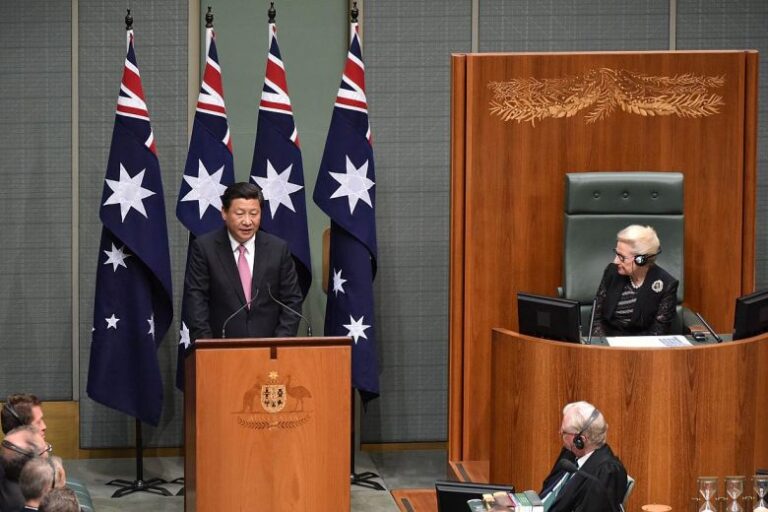
For the last three decades, the world has been drawing closer to China. Of all major Western nations, Australia has gotten closer than any other. And now it is realizing the fearsome consequences of that embrace.
It may be too late for Australians to pull out of the relationship. But their fate is a powerful warning to the rest of the world.
It started with a business relationship.
After growing at an astonishing annual rate of around 10 percent for some 30 years, China is now, by some measures, the world’s largest economy. It takes a massive amount of raw materials to fuel such growth, making Australia a perfect trade partner.
In 2017, one third of Australia’s exports went to China, and nearly a quarter of its imports came from China.
Soon the economic relationship went beyond trade. China started buying up huge tracts of Australia. Chinese companies own more than 1 percent of Australia’s land area, including coal mines, energy companies, cattle farms, tourist resorts and even tens of thousands of private homes.
By the end of 2019, China was officially Australia’s ninth-largest foreign investor. However, much Chinese investment is also funneled through Hong Kong, Australia’s fifth-largest investor.
The flourishing economic relationship affected other areas of Australian life. In 2015, a Chinese company closely tied to China’s Communist government signed a 99-year lease of Australia’s northernmost port in Darwin. The port is vital to the Australian military and also hosts a United States military base. Chinese companies also signed contracts for a 99-year lease on the port of Newcastle, a share in the port of Melbourne, and a 100-year lease on Western Australia’s Merriden airport.
All this trade necessitated a close political relationship. In 2014 the Australian government invited President Xi Jinping to address Parliament.